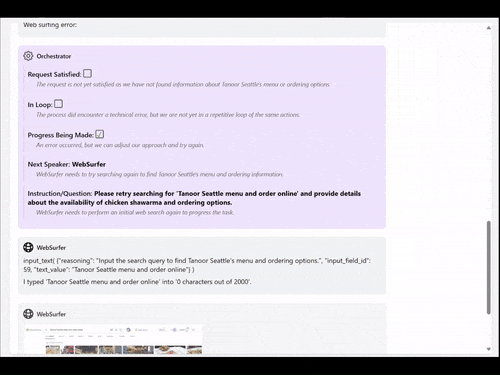
Welcome to this edition of Loop!
To kick off your week, we’ve rounded-up the most important technology and AI updates that you should know about.
HIGHLIGHTS
OpenAI is facing a slow down in model improvements
Why the TikTok ban is now unlikely to go ahead
How Metaphysic is using technology to “de-age” actors in real-time
… and much more
Let's jump in!


1. Amazon and Meta’s nuclear ambitions are dealt blows by regulators
Amazon, Meta, Google, and Microsoft have invested heavily in nuclear power to fuel their growing data centre electricity needs - which is being driven by a surge in AI and cloud computing.
However, US regulators have created obstacles for the tech giants.
Meta's new data centre project, which will be built next to a nuclear power plant, is being held back by the presence of a rare bee species.
Amazon has also faced issues, as they were planning to build a similar data centre in Pennsylvania.
The Federal Energy Regulatory Commission is worried that the new plant’s power demand would lead to lower reliability and higher costs for Americans.
So far, the FERC is blocking Amazon’s request. Only Microsoft’s plans are moving forward, as they want to revive a reactor at Three Mile Island plant.

2. Perplexity CEO’s offer to replace striking NYT staff
In an incredibly stupid move, Aravind Srinivas has offered his AI company’s services to replace the striking New York Times staff. He has since rowed back on the comments.
Technical staff at the NYT are striking to improve their pay and other work conditions.
But to be blunt, this was a very silly move from Perplexity’s CEO.
The company already has a terrible public image, as many believe that it is plagiarising content from millions of websites.
Staff at news organisations are worried that Perplexity’s product will destroy their business model, which relies heavily on ads, and result in job losses.
Most AI companies also have a bad image with the general public, since they are worried that the technology could impact their jobs.
By actually offering to replace those workers, Perplexity’s CEO reinforces those concerns that people have. Not a smart move.

3. OpenAI’s model improvements are now slowing down
When GPT-4 was released, we saw a huge improvement in performance compared to the previous generation.
But those huge jumps in performance may be coming to an end.
According to insiders at OpenAI, the next model - codenamed Orion - is not improving at the same rate.
In fact, Orion is not improving in some areas - such as coding. That’s a concern, as AI startups are investing hundreds of millions to train these models.
A new foundations team has been established within OpenAI to solve the problem.
As the company starts to reach the limits of data collection, they will need to shift to synthetic data instead and use it to train future models.
We can use today’s AI models to create this synthetic data, but it’s usually lower quality than what’s available on the internet.
There’s also the risk that it could introduce new problems within the future models, as synthetic data can contain mistakes and inaccurate information.

4. Anthropic will sell their AI tools to defence agencies
With the support of AWS, the startup is planning to offer their AI model on Palantir’s platform.
Anthropic’s AI model can then be used to analyse classified information and reveal insights for US intelligence staff.
It’s a surprise move for the company, which prides itself on being more privacy-focused than OpenAI.
Government agencies have shown increasing interest in AI, with a 1,200% jump in AI-related contracts, although some branches remain sceptical of its ROI.
This follows a recent move by the White House, which has ordered the intelligence agencies to move quicker and adopt these AI tools.

5. Google releases its AI-powered video presentation app
Google has announced the general rollout of its Gemini Vids app, which allows users to create video presentations with simple prompts.
Interestingly, Vids can be used to automatically add stock footage, generate scripts, or even add AI voiceovers.
The company has suggested that businesses could use it to convert customer support articles into videos, or create training videos for staff.
The app supports multiple languages, but some of the features are only available in English.

Microsoft reveals a new multi-agent tool

For some time now, Microsoft’s research team has been developing a platform for multiple agents to work together.
This means that there are several bots, which are then organised into a team and can communicate with one another.
Magentic-One is the new system and it can be used to solve tasks that haven’t been well-defined.
For example, if you ask the agents “can I order a BBQ chicken sandwich at Starbucks”, they will plan how to solve this task and then do it.
A planner agent will outline what needs to be done, before deciding which agent should carry out each step.
In this example, Microsoft’s system uses an agent that can search the web and click on buttons.
It was able to search the website, find the menu button, and check if that sandwich is on the menu.
It’s really, really impressive to see and it builds upon their previous work with AutoGen.
We are much closer to these agents becoming commercially viable.
Currently, costs are a little too high for most tasks - as you need to use Large Language Models and send them lots of data. That adds up pretty quickly.
But that will change over time. We’re another step closer towards AI tools that take a generic instruction and then complete the task for you, without you having to lift a finger.
It’s an exciting, and pretty frightening future.

The TikTok ban is unlikely to go ahead

America has voted to re-elect Donald Trump as their next President, but how does this impact the looming TikTok ban?
Surprisingly, Trump’s election win could actually save TikTok from being banned in the US.
When he was last president, Trump was the one who called for the Chinese platform to be banned - as it posed national security risks to the US.
Officials are worried that China is using the app to collect data about American citizens.
Specifically, it could be used to understand what each person is concerned about, their priorities, and who they are likely to vote for.
However, Trump’s stance has changed during the 2024 campaign. The president-elect now wants the app to stay, as it was crucial for engaging with millions of young voters - many of whom do not watch TV or read the news from traditional outlets.
In April, President Biden signed a bill that would force the sale of TikTok. The company has to find a buyer before January 19th 2025, just one day before the inauguration.
But it’s highly unlikely that TikTok will be banned. The company can ask for a 90-day extension, which will push a decision into Trump’s term in office.
Even if that extension isn’t granted, and TikTok is officially banned, the new President could stop agencies from enforcing it - helping TikTok to live on.
While Elon Musk and others have clearly benefited from the election, TikTok have also been one of the surprise winners.

📈 Nvidia just became the world's largest company, growing 850% since 2022 due to AI boom
🎨 A portrait of Alan Turing created by a robot has sold for $1 million
⚖️ FTX sues Anthony Scaramucci, FWD.us, and others
📱 Australia plans to ban TikTok, Instagram, and X for under 16s
📧 Voice behind AOL's 'You've Got Mail' has died
🚗 Waymo sees its valuation jump to $45 billion, worth more than Ford
🤖 Google is opening an AI hub in Saudi Arabia
💰 Tesla’s valuation jumps by over 30% to $1 trillion
🚨 Hackers are sending fake police data requests to tech companies and stealing private information
🛡️ Meta will allow its Llama models to be used for US national security



Metaphysic
This startup has seen huge successes recently, as its visual effects technology is being used to “de-age” Tom Hanks in his next movie.
Thanks to their technology, they can digitally change an actor’s face and add another face on top. This allows them to portray Tom Hanks across a 60-year time frame.
Unlike traditional CGI, which requires months of manual post-production work, Metaphysic's approach can determine the key facial landmarks and immediately apply the effect.
This allows the director to see the results in real-time and then adjust their camera shots.
According to Robert Zemeckis, the director of Tom Hanks’ movie called “Here”, his film could not have been made three years ago. Metaphysic’s advancement has changed that.
Their technology is also being used in the "Furiosa: A Mad Max Saga" and "Alien: Romulus” movies, despite concerns from Hollywood unions about the impact of AI.
If you want to learn more about how they’ve been able to achieve this, I’ve included a link below.
This Week’s Art

Loop via Midjourney V6.1

We’ve covered quite a bit this week, including:
Why Amazon and Meta’s nuclear ambitions were dealt blows by regulators
Perplexity CEO’s silly offer to replace striking NYT staff
Why OpenAI is facing a slow down in model improvements
Anthropic’s plan to sell their AI tools to defence agencies
Google’s new AI-powered video presentation app
Microsoft’s research team reveals a new multi-agent tool
Why the TikTok ban is now unlikely to go ahead
And how Metaphysic is using technology to “de-age” actors in real-time
Have a good week!
Liam

Share with Others
If you found something interesting in this week’s edition, feel free to share this newsletter with your colleagues.
About the Author
Liam McCormick is a Senior AI Engineer and works within Kainos' Innovation team. He identifies business value in emerging technologies, implements them, and then shares these insights with others.


